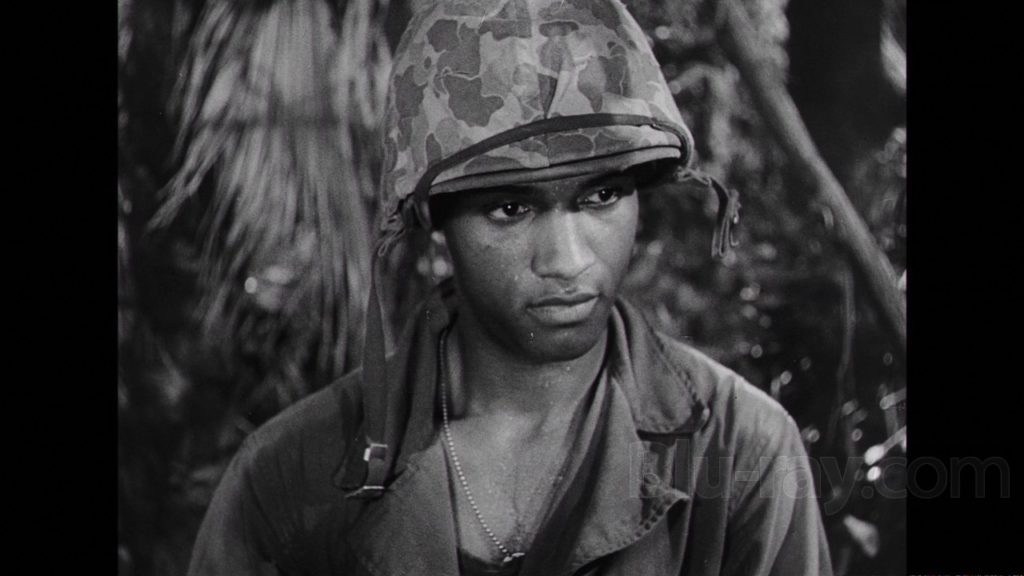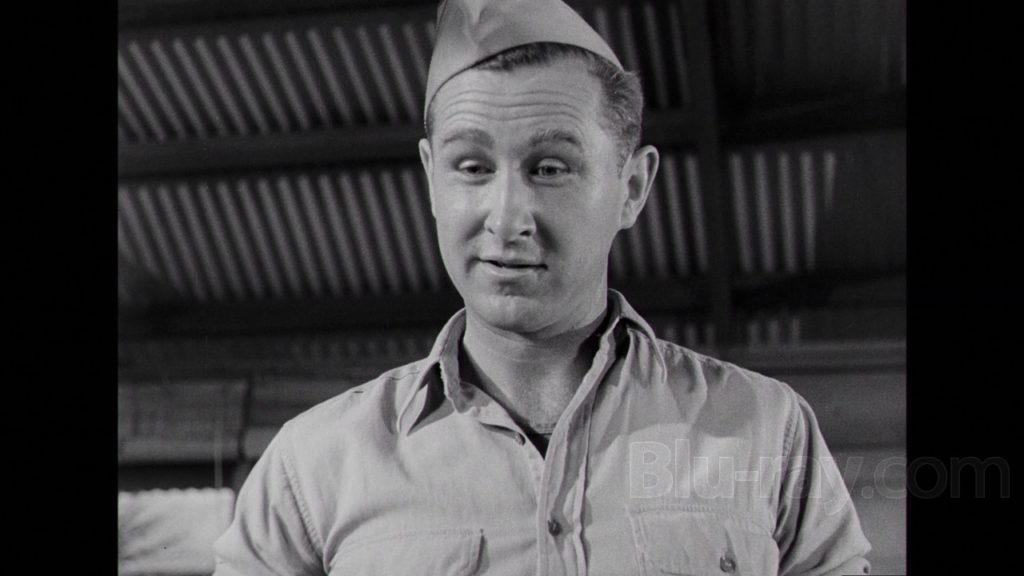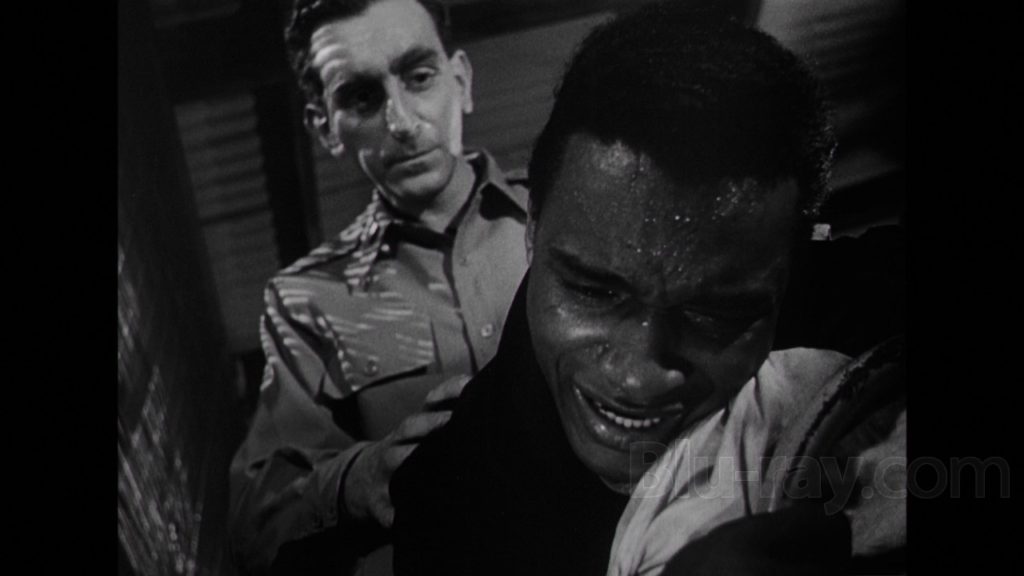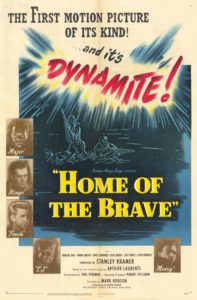|
Genres, Themes, Actors, and Directors:
- African-Americans
- Flashback Films
- Lloyd Bridges Films
- Mark Robson Films
- Mental Breakdown
- Racism
- Soldiers
- World War II
Review:
Based on a play by Arthur Laurents (in which the protagonist is Jewish), Home of the Brave is a refreshingly bold if dated and still-troubling depiction of racism in mid-century America. The flashback narrative structure reflects simplistic notions that psychoanalysis can cure enormous ills: if only Edwards can remember exactly what happened the night his legs stopped working, he will surely be well. Setting this dramatically dubious convention aside, Edwards’ challenges come across as all too realistic, aptly demonstrating the insidiousness of what it’s like to endure chronic racism, both blunt and subtle, on a daily basis. The main problem with Edwards’ travails is that they are presented as simply Edwards’ own deeply internalized belief in what he’s been told for years — that he’s inherently lesser than whites on every level. Bridges tries to convince Edwards to move past this toxic brainwashing, but slips up himself at one point, almost using a derogatory term and demonstrating that racist sentiments really are just a tongue slip away. As noted in Donald Bogle’s Blacks in American Films and Television: An Illustrated Encyclopedia (1989)
… there is a tinge of patronage because it is the white man offering his hand to the black man. Yet there is still something decent about the film’s sincerity and its optimism.
Indeed, Home of the Brave is a rare attempt to face uncomfortable race relations head on, and is worth a look for its unusual and unflinching storyline.
Note: It’s telling that the NY Times referred to racism as “the urgent and delicate subject of anti-Negro prejudice”; this was about the level of engagement possible at the time in mainstream media.
Redeeming Qualities and Moments:
- James Edwards as Moss

- Lloyd Bridges as Finch

- Robert de Grasse’s cinematography

Must See?
Yes, for its historical value.
Categories
Links:
|




One thought on “Home of the Brave (1949)”
First viewing. A once-must, for its place in cinema history. As per my post in ‘The ’40s-’50s in Film’ (fb):
“Listen to the nigger lover.”
‘Home of the Brave’ (1949): 1947 saw the release of Edward Dmytryk’s powerful noir drama ‘Crossfire’ (which probably surprised everyone when it received 5 major Oscar noms, including for Best Pic). Around that time, Arthur Laurents’ 1946 play ‘Home of the Brave’ was optioned for the screen. The play largely dealt with anti-Semitism in wartime – however, Laurents was told that the Jewish character in his play would be changed to a black guy because “Jews have been done.” There’s small doubt that that remark referred to ‘Crossfire’ – in which the murder of a Jewish man propels the plot. Here’s where things turn strange. ‘Crossfire’ is based on a novel by Richard Brooks called ‘The Brick Foxhole’ – in which the murder victim is gay, not Jewish. (Censorship at the time did not allow *any* talk of homosexuality on-screen.) Conversely, Laurents was gay but he no doubt figured it would be easier to get his play produced if the plot hinged on anti-Semitism and not homophobia. (Not even Tennessee Williams had that kind of freedom at the time.) …I mention that to illustrate how themes of prejudice were bounced around years ago. It’s not that way now… yet we have plenty of films still being made that remind us of the work against bigotry that remains – and may always remain – to be done. ‘HOTB’, however, differs significantly from ‘Crossfire’ in that the latter (even though it’s excellent) only shames anti-Semitism (as it should). ‘HOTB’ goes deeper, ultimately exploring not just prejudice but the specific, unique fear that men can personally combat in time of battle. With: Lloyd Bridges, Jeff Corey, James Edwards, Frank Lovejoy, Steve Brodie and Douglas Dick (who appeared in Hitchcock’s ‘Rope’ the year before).